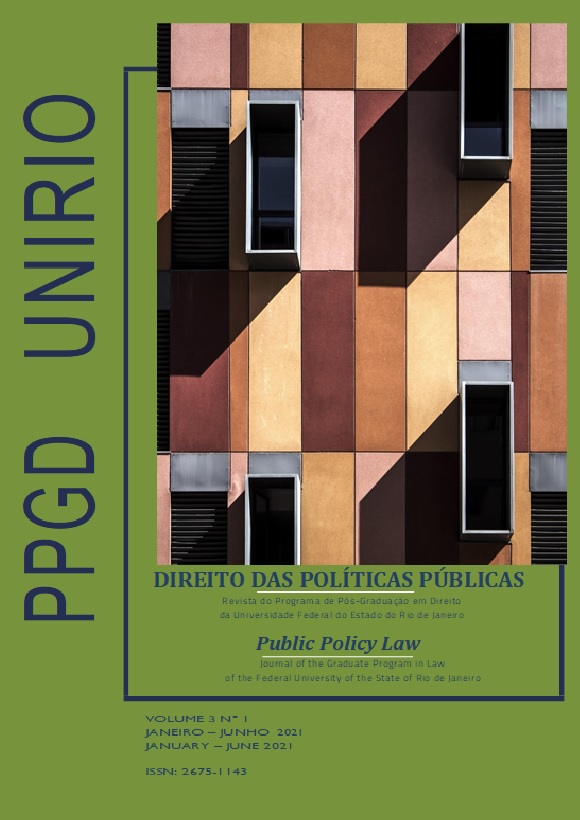THE RIGHT TO BE FORGOTTEN IN THE INFORMATION SOCIETY: TENSIONS BETWEEN THE RIGHT TO INTIMACY AND PRIVACY AND THE RIGHT TO FREEDOM OF EXPRESSION
Keywords:
Direito ao esquecimento, Sociedade da informação, Direitos fundamentais, Direitos da personalidade, PonderaçãoAbstract
Forgetfulness is a natural human condition. This is the rule, being the act of forgetting the exception. The act of remembering the past and recalling memories is healthy and contributes to the formation of collective and individual memory. However, technological advances and the phenomenon of the internet have brought about profound changes in human behavior and in the way society deals with the information made available on the network. Contemporary society has information as its raw material. Everything is produced from the informational content that is made available on the network. The elimination of temporal and spatial barriers, extreme speed and the unrestricted reach of information led to the reconfiguration of public and private spaces. This environment of change serves as a backdrop for the emergence of the right to be forgotten as an instrument for the protection of personality rights, also causing controversies around its application to emerge, since its recognition promotes a tension relationship between several fundamental rights, with highlighting the collision between the right to privacy and privacy and the right to freedom of expression and information.
Downloads
References
BAUMAN, Zygmunt; LEONCINI, Thomas. Nascidos em tempos líquidos. Trad. Joana Angélica D’Avila Melo. Rio de Janeiro: Zahar, 2018.
BRANCO, Sérgio. Memória e esquecimento na internet. Porto Alegre: Arquipélago Editorial, 2017.
BRASIL. Código Civil de 2002. Disponível em: http://www.planalto.gov.br/ccivil_03/leis/2002/l10406.htm. Acesso em: 18 out. 2020.
BRASIL. Constituição Federal de 1988. Promulgada em 05 de outubro de 1988. Disponível em: http://www.planalto.gov.br/ccivil_03/constituicao/constituicaocompilado.htm. Acesso em: 18 out. 2020.
CARELLO, Clarissa Pereira. Direito ao esquecimento: parâmetros jurisprudenciais. Curitiba: Editora Appris, 2019.
DINIZ, Maria Helena. Efetividade do direito a ser esquecido. Revista Argumentum,Marília, v. 18, n. 01, p. 17- 41, jan./abr. 2017.
FRAJHOF, Isabella Z. O direito ao esquecimento na internet: conceito, aplicação e controvérsias. São Paulo: Almedina, 2019.
MALDONADO, Viviane Nóbrega. Direito ao esquecimento. São Paulo: Novo Século, 2017.
OLIVEIRA, Álvaro Borges. SIRVENT, José Francisco Chofre. BENEDELLI, Rachel. Transnacionalidade dos princípios da não violação de privacidade na internet. Revista Sequência do Curso de Pós-Graduação da UFSC, Santa Catarina, v. 27, n. 52, p. 145-162, jul./2006.
REIS, Jordana Maria Mathias dos. Direito fundamental à memória e ao esquecimento. Rio de Janeiro: Lumen Juris Direito, 2019.
SARLET, Ingo Wolfgang; FERREIRA NETO, Arthur M. O direito ao “esquecimento” na sociedade de informação. Porto Alegre: Livraria do Advogado, 2019.
SARMENTO, Daniel. A ponderação de interesses na Constituição Federal. Rio de Janeiro: Lumen Juris, 2000.
SOUZA, Bernardo de Azevedo. Oito projetos de lei sobre direito ao esquecimento no Brasil. Jusbrasil, 2019. Disponível em: https://besouza86.jusbrasil.com.br/artigos/759565358/8-projetos-de-lei-sobre-o-direito-ao-esquecimento-no-brasil?ref=feed. Acesso em: 28 abr. 2020
WERTHEIN, Jorge. A sociedade da informação e seus desafios. Revista Ciência da Informação, Brasília, v.29, n.02, p. 71-77, mai./ago. 2000.





